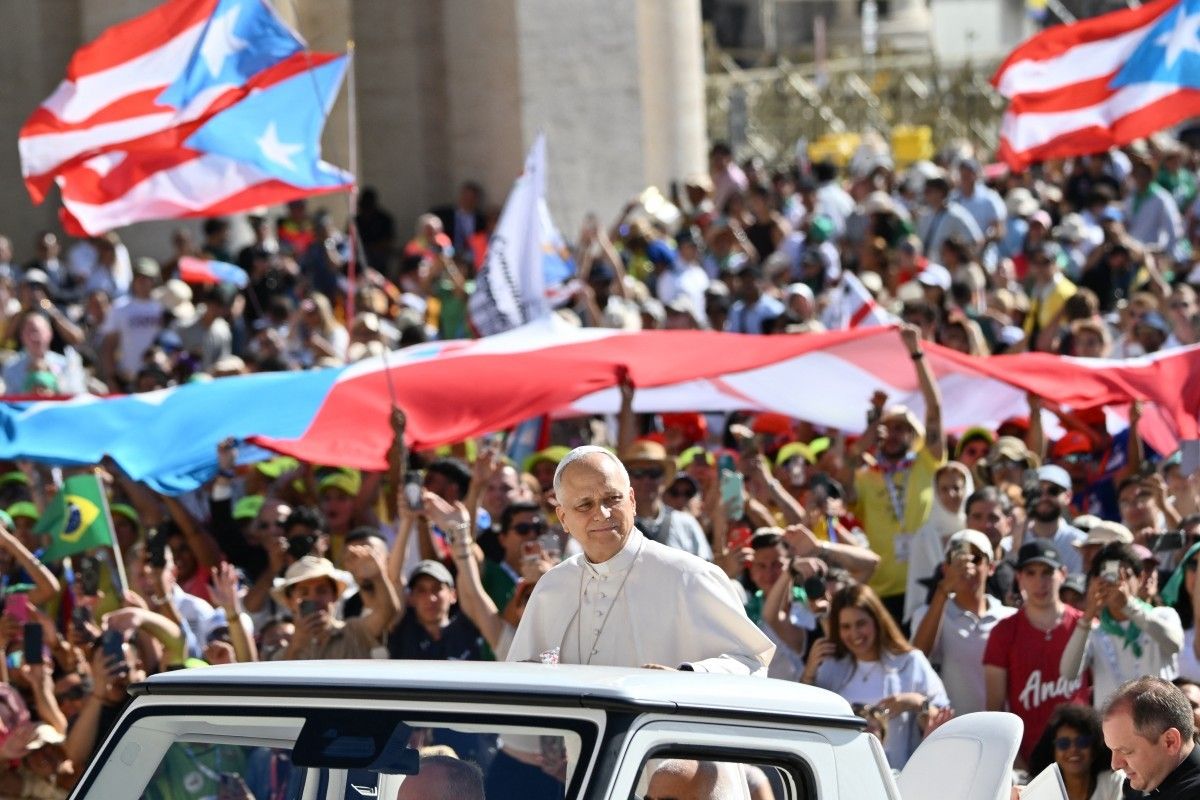MANILA, Philippines — Pope Leo XIV, the American-born pontiff who spent most of his ministry in Peru before rising to the Vatican, is the most favorably viewed public figure among 14 US and global leaders in a new Gallup poll released Tuesday, August 5.
The survey found 57% of Americans view Pope Leo favorably compared to just 11% unfavorably. This gives him a net rating of +46 that far exceeds other world figures in the July 7-21 poll.
In comparison, Ukrainian President Volodymyr Zelenskyy ranked second with a +18 net favorable rating, followed by US Senator Bernie Sanders at +11.
Gallup says Pope Leo’s 57% favorable rating is broadly in line with how his two predecessors were received at the start of their own papacies. Pope Francis got a 58% rating after being elected in 2013, and Pope Benedict scored 55% in 2005.
Among US Catholics, Leo’s support is even higher, at 76%. This is slightly lower than Francis’ initial 80% rating with American Catholics and higher than Benedict’s 67%.
Relatively few Americans view Pope Leo unfavorably at 11%, while 18% aren’t familiar enough to have an opinion and 13% haven’t heard of him.
The survey was the first Gallup rating of the pontiff since his election in May.
Broad appeal. The current pope is also the only figure viewed positively by US Democrats and Republicans alike; however, Gallup’s analysis of its survey results shows the pontiff’s appeal skews more liberal.
Sixty-five percent of liberals said they view him favorably, compared to 46% of conservatives — a pattern that mirrors Pope Francis in his later years but differs from Pope Benedict, who consistently scored better with conservatives throughout his papacy.
“Given the similarity to Francis’ image in his later years, this could indicate that Americans perceive Leo to be continuing Francis’ approach to religious and social questions, or that they are assuming that’s the case until shown otherwise,” Gallup says.
This broad appeal sets Pope Leo apart from other public figures in the poll, many of whom were — as expected — viewed through sharply partisan lenses.
Several current and former US leaders — particularly those associated with US President Donald Trump — received net negative ratings. Among the lowest were tech executive and former Trump cabinet member Elon Musk (-28) and US Secretary of State Marco Rubio (-16). Both figures saw a steep 24-point drop in their net favorability since January, according to Gallup.
Musk, who resigned in June as head of the Department of Government Efficiency and has since publicly clashed with Trump, is now viewed unfavorably by 61% of Americans, compared to 33% who view him positively.
Rubio, who now also heads the U.S. National Security Council, saw his net rating fall from +8 in January to -16 in July.
Meanwhile, Trump, Vice President JD Vance, and Health Secretary Robert F. Kennedy Jr. each saw 13- to 14-point drops in their net favorability scores since January. Biden, by contrast, held steady: his favorable rating rose slightly from 39% in January to 43% in July.
Democratic figures fared better overall, with Sanders, Zelenskyy, and Rep. Alexandria Ocasio-Cortez receiving strong support among Democratic respondents.
Pope with a global outlook. Born in the United States but widely seen as “international by life,” Pope Leo XIV brings one of the most global backgrounds to the papacy in recent history. The former Cardinal Robert Prevost speaks five languages — English, Spanish, Italian, French, and Portuguese — and spent decades working across Latin America, Europe, and Asia.
Before his election, Prevost led the Augustinian Order for over a decade, overseeing some 2,500 friars worldwide. His global ministry includes the Philippines, where, as prior-general of his order from 2001 to 2013, he visited at least nine times, working with nearly 200 Filipino Augustinian missionaries and expanding the order’s footprint across Asia.
His approximately 20 years of missionary work in Peru during times of political unrest, along with a key Vatican leadership role that saw him vetting bishop appointments globally, have earned him a reputation as a unifying figure between the Global South and the West.
